Tattooing one’s body is as old a form of expression as the human society itself, with some historical records going back to the 5th or 6th Century BCE. While tattoos were originally an expression of religious or societal belonging, they now are largely a means of self-expression. But human self-expression is ever-evolving and along with this evolution comes what I call ‘tattoo regret’
Over these years I have come across a variety of reasons as to why people would like their tattoo removed. Sometimes it is because they got the tattoo under peer pressure and regret it, or sometimes it is their partners or parents do not approve of it. And sometimes the reason may be more serious like wanting to pursue careers that do not allow for displaying of tattoos.
No matter what your reason for getting rid of your tattoo, one thing is for sure that this will be an uphill task with absolutely no easy and quick solution.
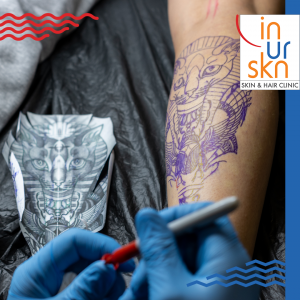
But First… The Things That Do Not Remove Tattoos
What is worse than a permanent and unwanted tattoo is a botched attempt at trying to remove it. I have had patients who have approached me after trying things at their home to remove the tattoo. These not so bright ideas have included things like exposing the inked area to acids and trying to burn away the tattoo with heated utensils. Believe me these are the worst things I have had to deal with, as the issue then becomes not the tattoo but the associated burn and the infection that follows. If you do not want to approach a dermatologist for removing a tattoo or do not have the budget for getting a tattoo removed, please do not engage in over-the-counter or home remedies for tattoo removal.
So What Are Lasers And How Do They Work For Tattoo Removal
When one thinks of lasers they think of sci-fi movies with weapons shooting out neon red and blue laser beams. These are not the lasers we are talking about. The lasers we dermatologists deal with are medical lasers whose beams are not even visible to the naked eye.
The medical laser that best works towards tattoo removal are ND –Yag lasers with either nano-second or pico-second switching technology. There are also other medical lasers that are used for tattoo removal like ruby lasers and alexandrite lasers. Each of these lasers has different abilities and different safety profiles.
But I am personally biased toward the pico-second ND-Yag Laser which has the best safety profile and does not cause any adverse effects to treatment like scarring, or change in the texture of the skin, or pigmentation-related issues.
So How Does A Laser Exactly Remove A Tattoo?
The inks used for making permanent tattoos have a very high affinity for the skin and tend to penetrate into the deeper layers of the skin and hence can never be removed by a process that works only on the surface.
A laser has the ability to penetrate the human skin into its deeper layer and always has a higher affinity for tattoo ink than the skin. Hence when the laser hits the ink it dissipates all its energy into the tattoo ink and breaks down the ink particles into microscopic fragments, these fragments are then carried away by the body’s lymphatic system and are excreted out over the next few weeks.
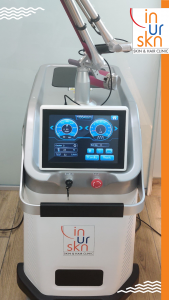
So What Should I Expect During And After The Treatment?
During a tattoo removal treatment, the area to be treated is cleaned and disinfected before the treatment and the doctor starts exposing the tattoo in question to various wavelengths and intensity of the laser. Depending on the colors used and the complexity of the tattoo, a doctor may undertake several passes of the laser on the tattoo. The process can be classified as mildly painful but one which most individuals can withstand. If you find the pain unbearable, the doctor may choose to use a numbing cream.
The immediate end result of the treatment is that the area looks whitish in color, almost devoid of any pigment and also it feels raised and inflamed. But over the next hour, the inflammation goes down and also the tattoo is visible again. The dermatologist may advise some anti-inflammatory topical application and some medications to allow for faster recovery of the inflammation.
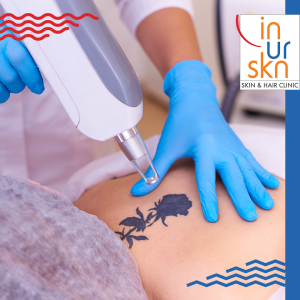
What About Costs And The Results?
A tattoo removal is by no means a low-cost procedure. It is intense both in terms of time and money. A typical tattoo removal treatment requires a minimum of 8 sessions which can even increase to 12 or 16 sessions if the tattoo is very complex. Also, each session is done at a minimum interval of 4 to 6 weeks. Also in terms of cost, each session can cost between 2000 to 5000 rupees based on the size and complexity of the tattoo.
One can see a visible reduction in the intensity of the tattoo pigment after about 3 to 4 sessions. One should plan that for the tattoo to be lightened to nearly a zero base one may need anywhere between 8 months to 24 months. I would recommend asking the clinic you are visiting if they have long-term plans which may make it more cost-effective.
Are There Things I Should Consider Before Getting Inked Which May Help?
I come across a lot of patients who come to me with infected skin after their tattooing session. This leads me to render basic advice that please choose a tattooing parlor that is extremely hygenic and will ensure the usage of disposables from gloves to needles.
Second thing I would advise is that if you are considering a career in a profession that pays attention to the physical appearances like airlines or hospitality, I would advise you to not get a tattoo on an area of your body that is easily visible like your arms etc.
But most importantly remember that laser tattoo removal works on the principle of the laser being attracted to the tattoo pigment rather than the skin, which means that the darker the pigment the better and easier is the removal with a laser. So when choosing a tattoo keep the below in mind
- Black – Easy to Remove
- Dark Green and Dark Blue – A little difficult to remove
- Red & Orange – Difficult to remove
- Yellow – Extremely difficult to remove
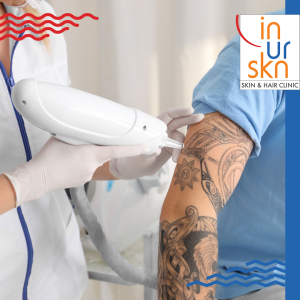
In conclusion, I would like to leave you with the thought that Laser Tattoo Removal is an expensive and time-consuming procedure, and with Tattoos, the age old adage of ‘better safe than sorry’ holds true.
Disclaimer:
The objective of this article is to educate the reader and help them make wiser choices under the guidance of a trained dermatologist. It is not meant to be used by patients for self-diagnosis or for avoiding proper medical treatment. The images used in the above blog are only for visual representation purposes. Actual procedures and results may vary from patient to patient.
About Dr. Sejal Saheta and InUrSkn:
Built on more than a decade of experience of Dr. Sejal Saheta, we are an honest and affordable skin and hair care clinic in Powai, Mumbai. Our goal is to make each patient comfortable and happy with their appearance with the least amount of intervention.
Dr. Sejal Saheta has dual degrees of MD and DNB in dermatology and venereology and has worked alongside some of the senior-most doctors at the largest hospitals in Mumbai.
Located in Powai, InUrSkn is the largest skin and hair clinic in the central suburbs of Mumbai and offers the latest technology in the safety of world-class infrastructure.
We are happy to be a part of your journey to reach your health goals. If you think we have been able to help you, please do review us:
On Practo: http://prac.to/vkpj
On Google: https://goo.gl/zHfACo
How can Dr. Sejal and InUrSkn help?
No matter what your skin and hair needs, Dr Sejal Saheta ensures personal attention to each patient and creates customized and scientifically-backed treatment plans for each patient. Through her years of experience and use of technology at her clinic (InUrSkn – Skin and Hair Clinic) located in Powai, Mumbai, she has been able to consistently deliver great results in the field of dermatology and trichology to thousands of patients. All of the above is done with the best-in-class machines within the comfort and safety of world-class infrastructure.




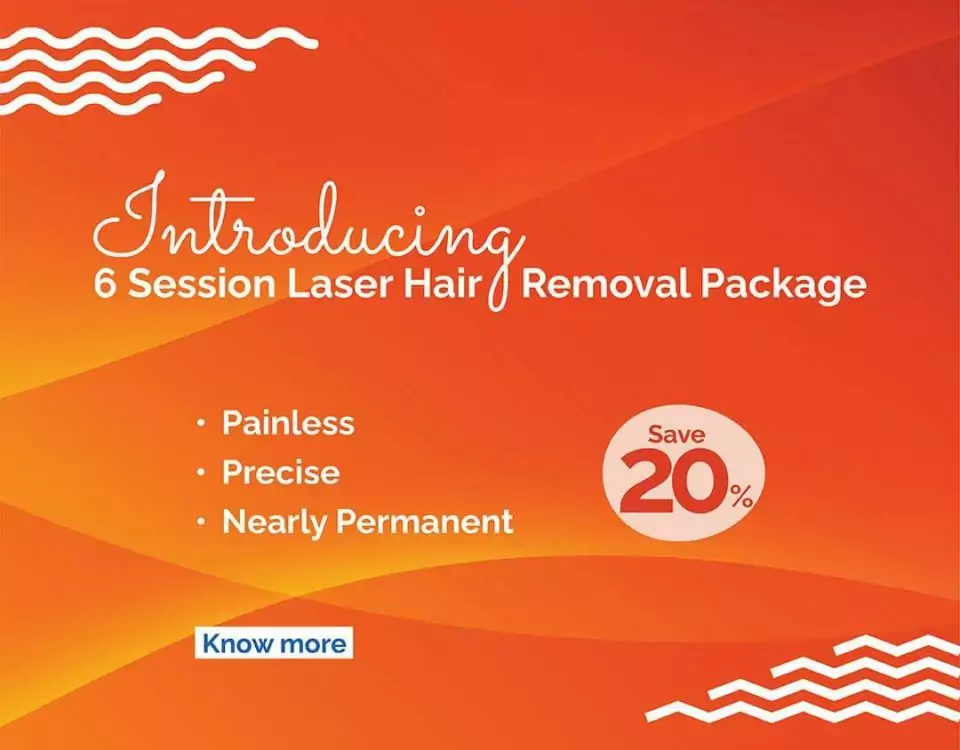

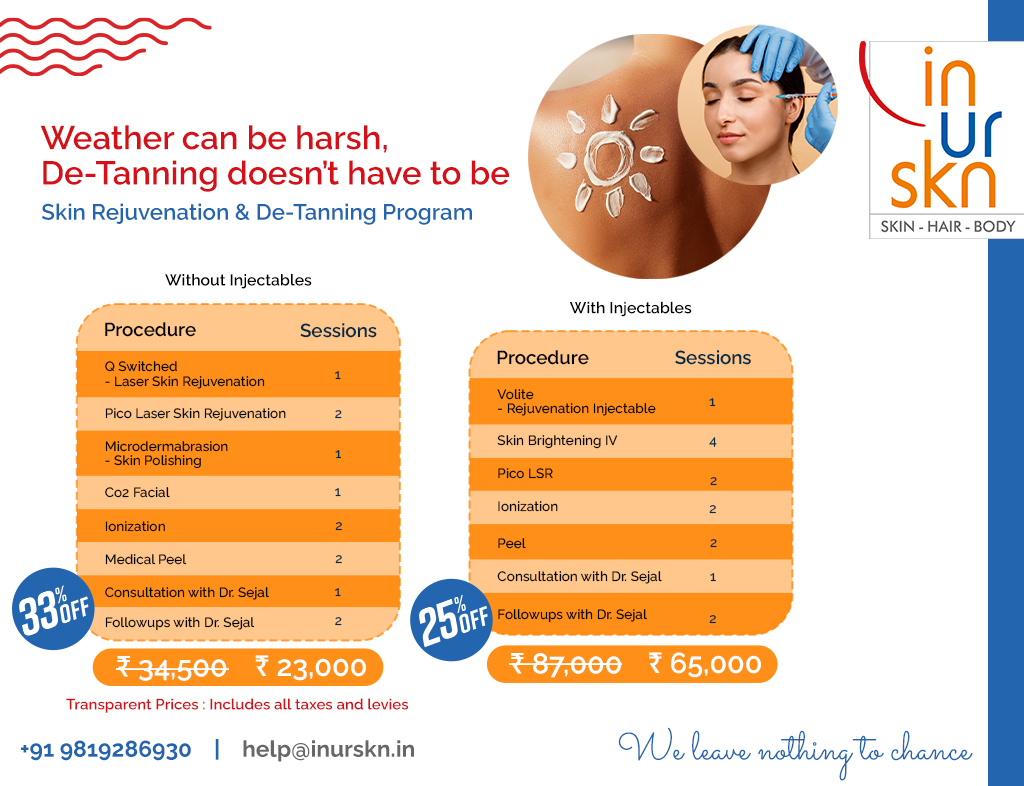














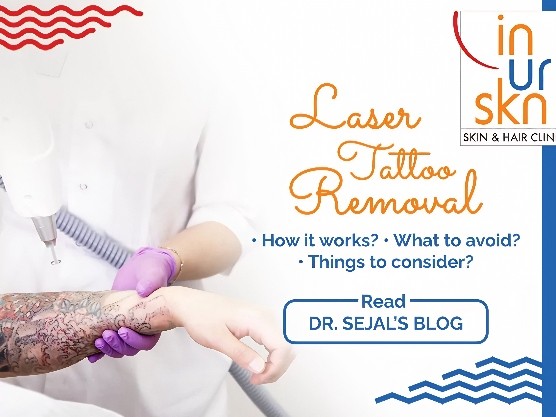
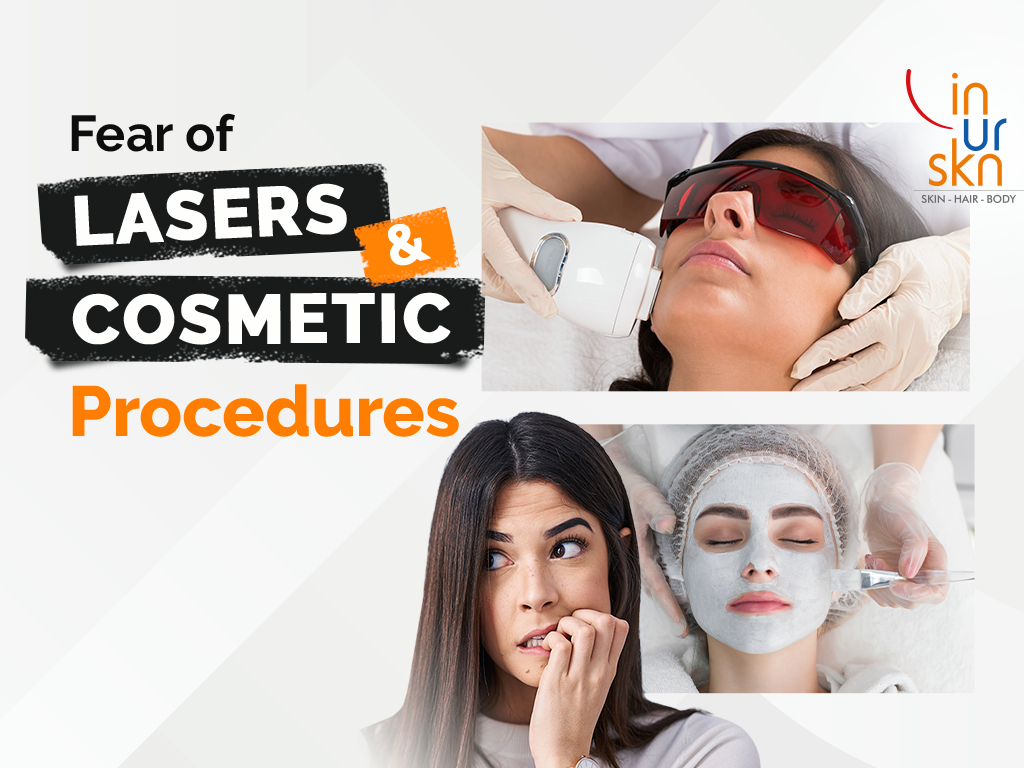

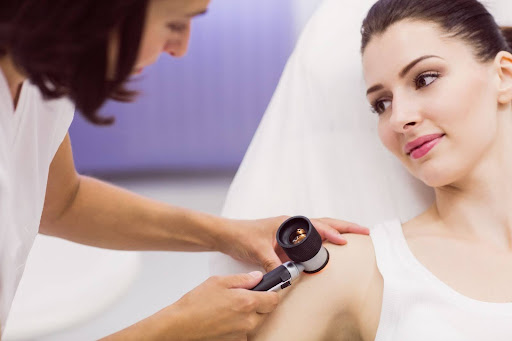
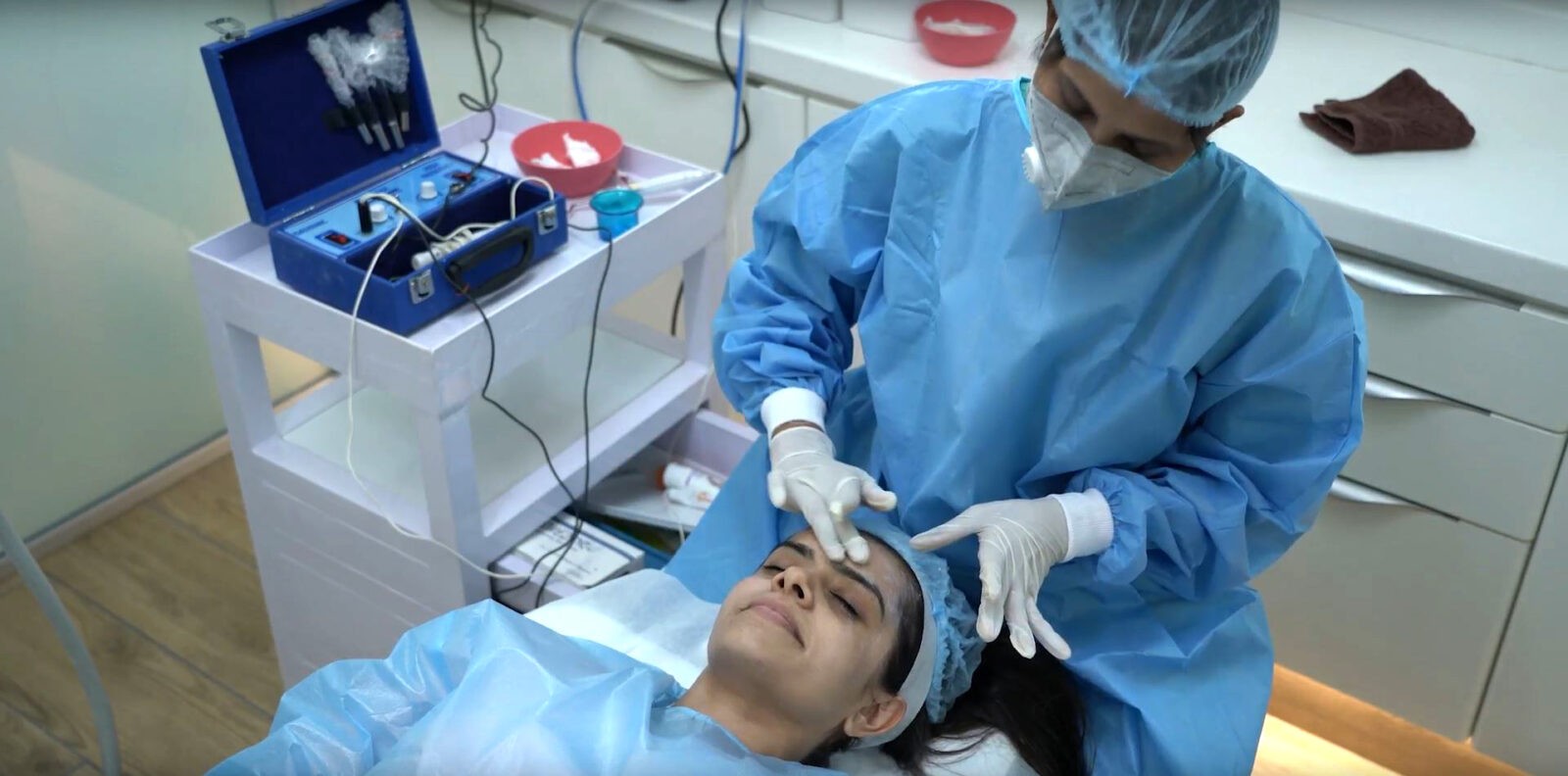
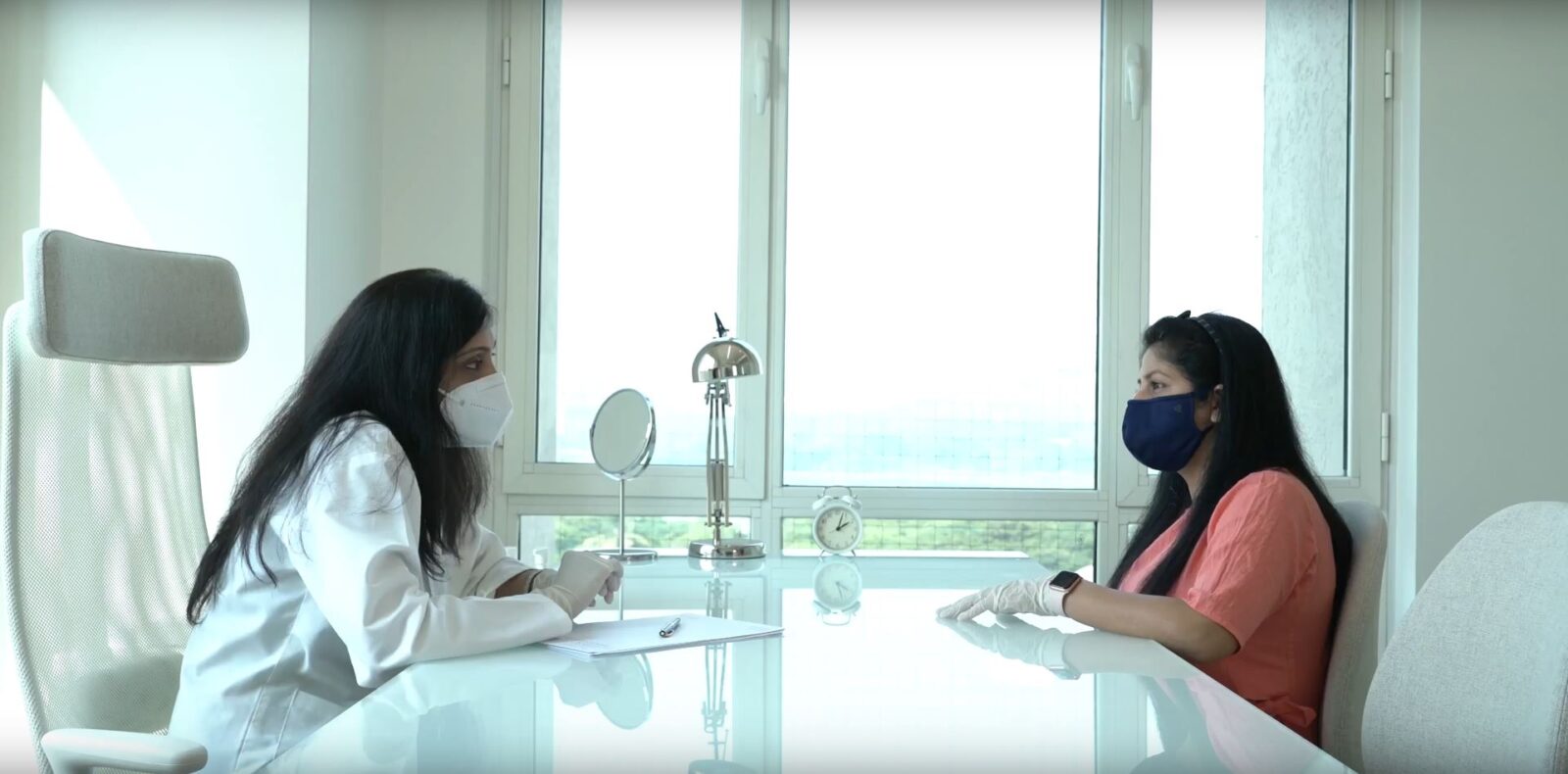

 Call us
Call us Book Appointment
Book Appointment Enquire
Enquire Location
Location




